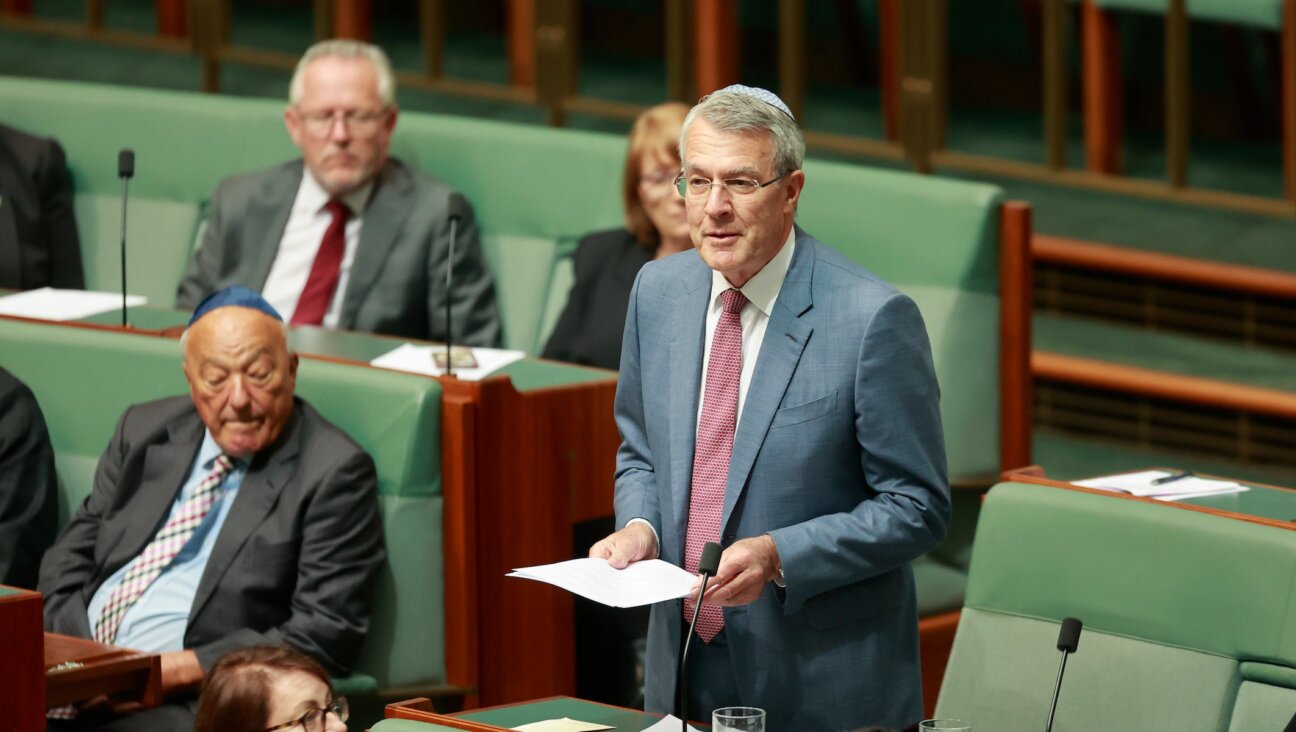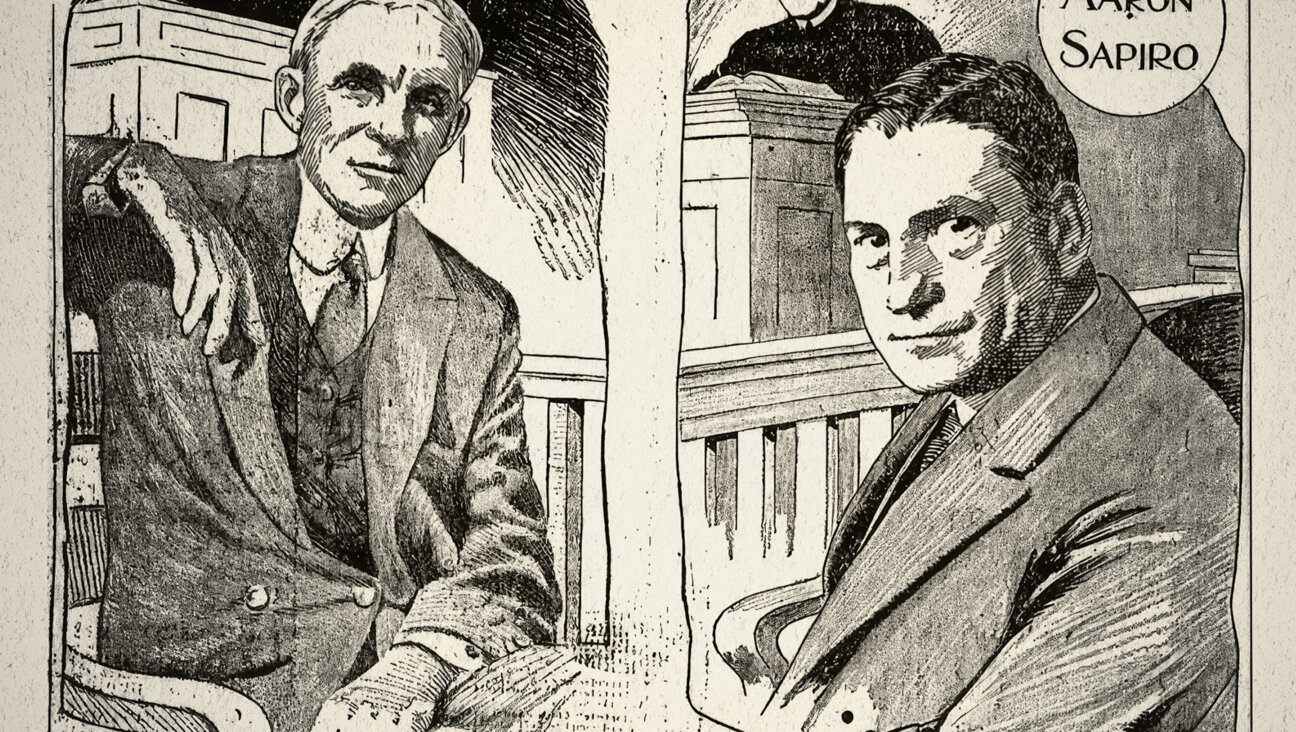How Dean Can Capture the ‘Radical Center’
With former Vermont governor Howard Dean leading the Democratic pack, his viability as a challenger to President Bush is coming under increasing scrutiny. In particular, many are asking whether he will be able to reach beyond his activist, liberal base of support and connect with Middle America.
Can Dean win over good old boys who have Confederate flags in their pickup trucks — or, more importantly, the vast majority of white working-class Americans who don’t? These voters are neither New Left intellectual elites (anti-war, politically correct) nor New Democrat business elites (anti-labor, pro-business). They are neither neoconservatives (who have now become economic conservatives) nor compassionate conservatives (wealthy voters who like photo-ops involving African-American children). Most non-college-educated white voters are something entirely different: “radical centrists” — intensely patriotic, populist on economics and moderate to conservative on social values issues. They don’t have much of a voice in either political party, which is why they have constituted the key swing vote for the past four decades — capable of moving from the likes of Robert Kennedy to George Wallace in a matter of months. Howard Dean has a chance at getting their votes, but only if he takes some dramatic steps.
Dean first has to dig himself out of an enormous hole with white working-class voters for whom he may seem to represent the worst combination of New Left anti-war policies and New Democrat privatization policies. At present Dean appeals mostly to the “moderate middle” — upscale, socially liberal and fiscally conservative voters who are the exact opposite of the radical center. The Century Foundation’s Ruy Teixeira notes that Dean has polled best among those making more than $75,000 a year, while Los Angeles Times columnist Ron Brownstein wonders whether Dean can “escape the Starbucks ghetto.”
On the other hand, Howard Dean (like any Democratic presidential nominee) has an enormous opportunity to appeal to working-class voters given George W. Bush’s unrelentingly pro-rich and anti-labor record. Democrats are already having a field day with the administration’s association with Ken Lay, the Iraq contracts for Halliburton, the oil and gas companies writing an energy bill, and on and on. Even Ronald Reagan didn’t succeed in getting the estate tax repealed. Meanwhile, the minimum wage has been stuck at $5.15 an hour since 1997. As Newsweek’s Jonathan Alter notes, “President Bush’s reward-the-rich ethos is creating class consciousness among working people for the first time in years.”
Dean’s strategy is to pound away at economic issues while avoiding social questions. “If the president tries to divide us by race, we’re going to talk about health care for every American,” he says. “There’s nothing black or white about having to live from one paycheck to the next.” He asks: “Why can’t we talk about jobs, health care and education, which is what we all have in common, instead of allowing the Republicans to consistently divide us by talking about guns, God, gays, abortion and all this controversial social stuff that we’re not going to come to agreement on?”
The problem with that strategy, of course, is that Karl Rove is unlikely to agree to Howard Dean’s proposal that the election be fought over economic rather than cultural issues. Dean must appeal not only to the interests of voters, but also to their values, and here Dean must begin by inoculating himself on two key issues: national security and religion. Dean needs to distance himself from some of his pacifist supporters and remind voters that he backed the 1991 Gulf war. He needs to make clear that his anger is addressed at Bush, not at the United States, and that he backs a strong foreign policy more in the tradition of FDR and JFK than George McGovern or Michael Dukakis. And Dean needs to speak about his faith in God more intelligently than he has to date, or Job’s fate will be his.
Most importantly, Dean needs to develop a broader theme for the future that simultaneously appeals to working-class values and interests. Here’s one to consider: Whereas Bush has promoted market values above all others, Dean will promote democratic values. Dean’s campaign is legendary for its participatory nature; he needs to reframe his agenda in similar terms. For working-class people, who are used to being bossed around, democratic values are particularly dear.
Whereas Bush has favored private school vouchers as a way of meeting the needs of education “consumers” (parents) and producing future employees for the marketplace, Dean should promote public education, not only to train future workers but to create tolerant citizens, loyal Americans and national unity in our diverse democracy. While Bush has fought labor unions at every turn on the theory that doing so will make the economy more efficient, Dean should back the right of workers to organize in labor unions, whose leadership is democratically elected, whose goal is to democratize the workforce, and whose vital political role is to counterbalance the influence of large private financial interests. Where Bush has allowed the market to create enormous inequalities of wealth, Dean should seek to address the gaps in wealth that can undermine democracy and call on the rich, like the rest of us, to sacrifice during a time of war. Finally, while Bush belatedly came to the argument that the Iraq war was about promoting democracy in the Middle East, Dean should place democracy building at the very core of his foreign policy.
But to really capture people’s attention, Dean must promote the value of democracy even where it doesn’t dovetail neatly with the interests of traditional Democratic constituencies — for example, on the policy of affirmative action. Today, affirmative action in higher education is mostly about helping middle- and upper-middle-class minority students. According to the leading scholarly defense of affirmative action, William G. Bowen and Derek Bok’s “The Shape of the River,” 86% of black students enrolled at 28 selective colleges studied were middle or upper-middle class.
Dean should come out for democratizing affirmative action so that it benefits working-class and low-income students of all races. In fact, Dean once did make this argument. In a 1995 CNN interview, Dean said, “I think we ought to look at affirmative action programs based not on race but on class.” That position has strong public support. A February 2003 Los Angeles Times poll, for example, found that Americans opposed the University of Michigan’s racial preference policies by 56% to 26% but supported preferences for low-income or economically disadvantaged students of all races by 59% to 31%.
Dean, however, has since shifted on this issue. He now says he’s in favor of affirmative action by both race and economic class. Given the role of minority voters in the Democratic nominating process, he’s unlikely to revert to his original position. But even his new stance makes a powerful statement, because he is saying that current affirmative programs, which are only about racial preferences and ignore the role of class, are fundamentally flawed.
The larger point is that racial identity is not all-determining; working-class whites need a leg up too. Howard Dean should go to Yale University to make his point. At the heart of the liberal Yankee establishment, which has made admirable progress on integration by race, Dean should declare that that’s not enough. He should say: “George Bush and I both went to college here, and our fathers and grandfathers both went here, but here’s the difference: I believe that in a democracy people from all sorts of backgrounds should be able to attend. Today, while about 40% of American families have incomes low enough to qualify for Pell Grants, only 10% of Yale undergraduates do. Yale should stop giving breaks to the children of alumni, who don’t deserve them, and instead give a leg up to smart working-class kids who have overcome tremendous odds.”
Granted, affirmative action is not a burning issue like the war in Iraq or jobs or tax cuts. But neither was rapper Sister Souljah’s hate-filled comment about killing whites, and yet Bill Clinton knew the symbolic importance of standing for principle and reaped enormous political benefits from his 1992 condemnation of her. If Howard Dean is willing to push democracy consistently, even where it feels uncomfortable, the white working class just might come along.
Richard D. Kahlenberg is the author of “The Remedy: Class, Race, and Affirmative Action” (Basic Books, 1996). He currently is writing a book about teachers’ union leader Albert Shanker and American liberalism for Columbia University Press.
















